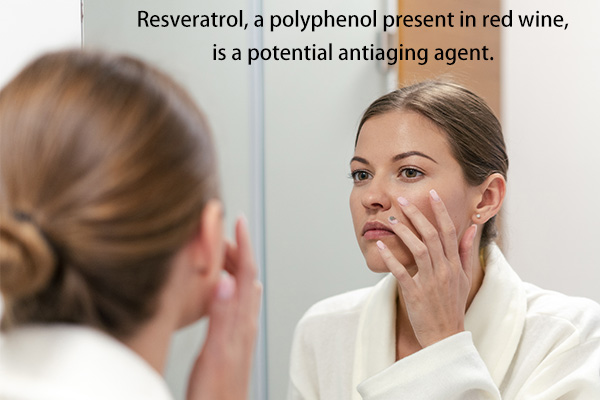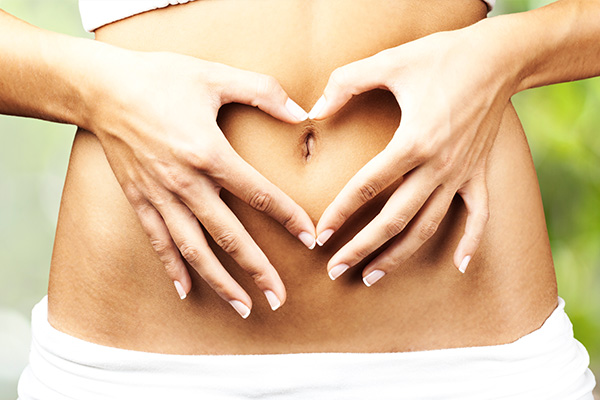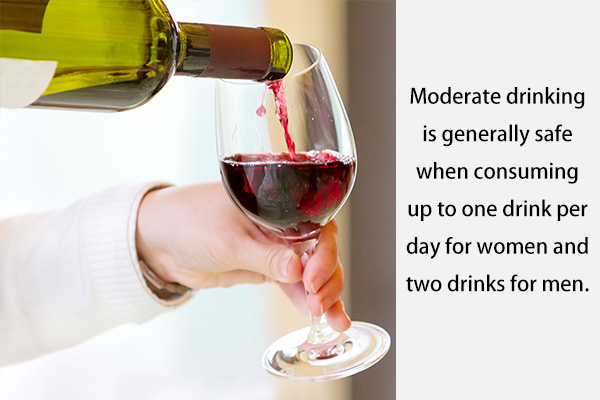In this article:
Red wine has been widely studied for its effects on health. However, a large fraction of these studies are animal-based, warranting further research.

Potential Benefits of Red Wine Consumption
The potential health benefits of red wine consumption include the following.
1. Antioxidant in nature
While ethanol has pro-oxidant effects, red wine contains flavonoids, anthocyanins, and catechins that act as antioxidants and help reduce the risk of cardiovascular diseases. (1)
2. Can help prevent aging

Resveratrol, a polyphenol present in red wine, is a potential antiaging agent. Moreover, it may help in managing aging symptoms associated with frailty syndrome. (2)
Resveratrol functions by stimulating the longevity genes and restoring collagen. It can also help prevent the age-related decline of cardiovascular function to some extent. (3)
3. Acts as an anti-inflammatory agent
Resveratrol and the other polyphenols in wine can act against pro-inflammatory cytokines, especially in cardiovascular pathologies and cancer. (4)
4. Helps reduce the risk of heart disease
The antioxidant and anti-inflammatory polyphenols in red wine are particularly cardiovascular-protective in nature. They also help improve lipid profile, oxidative stress, and insulin resistance. (5)
Red wine is also found to increase the levels of good cholesterol. (6) However, the consumption of alcohol may increase your blood pressure.
5. Helps manage type 2 diabetes
Red wine has been shown to increase insulin sensitivity and decrease insulin resistance, (5) enabling the cells to effectively use their insulin.
Therefore, red wine can help enhance glucose utilization under type 2 diabetic conditions. (7) Resveratrol found in red wine may decrease artery stiffness in diabetes as well. (8)
ALSO READ: Healthy and Harmful Foods for Diabetics
6. Manages neurological disorders
The polyphenol resveratrol found in red wine can easily pass the blood-brain barrier. It has been shown to exhibit neuroprotective behavior, including prevention of ammonia toxicity, improvement of cognitive function, and abrogation of depression. (9)
The flavonoids in red wine have been found effective in preventing neurodegenerative disorders. (5)(9)
7. Improves metabolic syndrome
Since red wine helps improve lipid profile and aids in the reduction of hypertension, abdominal obesity, and diabetes risk, it contributes to lowering the prevalence of metabolic syndrome. (10)(11)
8. Aids gut health

Recently, red wine was studied for its effects on gut health, finding a beneficial association with the gut microbiota. (12)
9. Improves skin health
Along with its anti-aging effects, red wine helps enhance skin protection with the help of its polyphenols. (13) However, further research is required to establish the dermal effects of red wine.
10. Helps reduce stress
Resveratrol has been found to have anti-stress effects that may help with anxiety and depression. (14) Moreover, it helps improve neuronal health, which is related to the development of stress and depression. However, more human-based studies are required to establish these effects.
11. May help prevent oral problems
The polyphenols found in red wine have been shown to help fight off harmful bacteria in the mouth. However, these claims are based on animal studies mostly. (15)(16)(17) Therefore, further research can help establish the potential role of red wine as an antibacterial agent.
Consumption of Red Wine

Since wine helps improve your overall health when consumed in moderation, it can be included in a healthy diet. However, remember that just because you drink red wine doesn’t mean you can eat a high-fat diet.
Moderate drinking is generally safe when consuming up to one drink per day for women and two drinks for men. The amount for men is higher due to body weight differences, and the enzyme that breaks alcohol down differs based on sex. (18)
After the age of 65, the recommendation decreases to one drink daily. For healthy adults, one drink is considered as 5 ounces of wine. (19)
Avoid wine if you have the following conditions:
- Pregnant
- Alcoholism or a strong family history of it
- Liver or pancreas disease related to alcohol
- Heart failure
- Nocturnal hypoglycemia
It is best to consult your doctor on the consumption of red wine as it may interact with certain medications.
Side Effects of Red Wine Consumption
The side effects of red wine consumption include:
- Headaches
- Increased appetite
- Weight gain
- Liver dysfunction
- Increased estrogen levels
- Sulfite allergic reaction
- Addiction
- Change in mood
- Hypoglycemia
- High blood pressure
Overconsumption of alcohol in general, can increase your risk of:
- Heart failure
- High blood pressure
- Stroke
- Cancer
- Liver disease
- Pancreas disease
- Accidents
- Behavioral disorders
- Depression
- Coordination issues
- Disruption of sleep
- Gastrointestinal concerns
While it is generally said that wine helps decrease the risk of cancer, there is not enough data to conclude so. Moderate alcohol consumption can actually increase the risk of postmenopausal breast cancer. (20)
Final Word
It is not recommended to start drinking wine just for health protection. The ideal timing to consume the drink is right before or during a meal. Daily consumption of red wine in moderation has many potential health benefits, especially in people with type 2 diabetes.
- Was this article helpful?
- YES, THANKS!NOT REALLY


